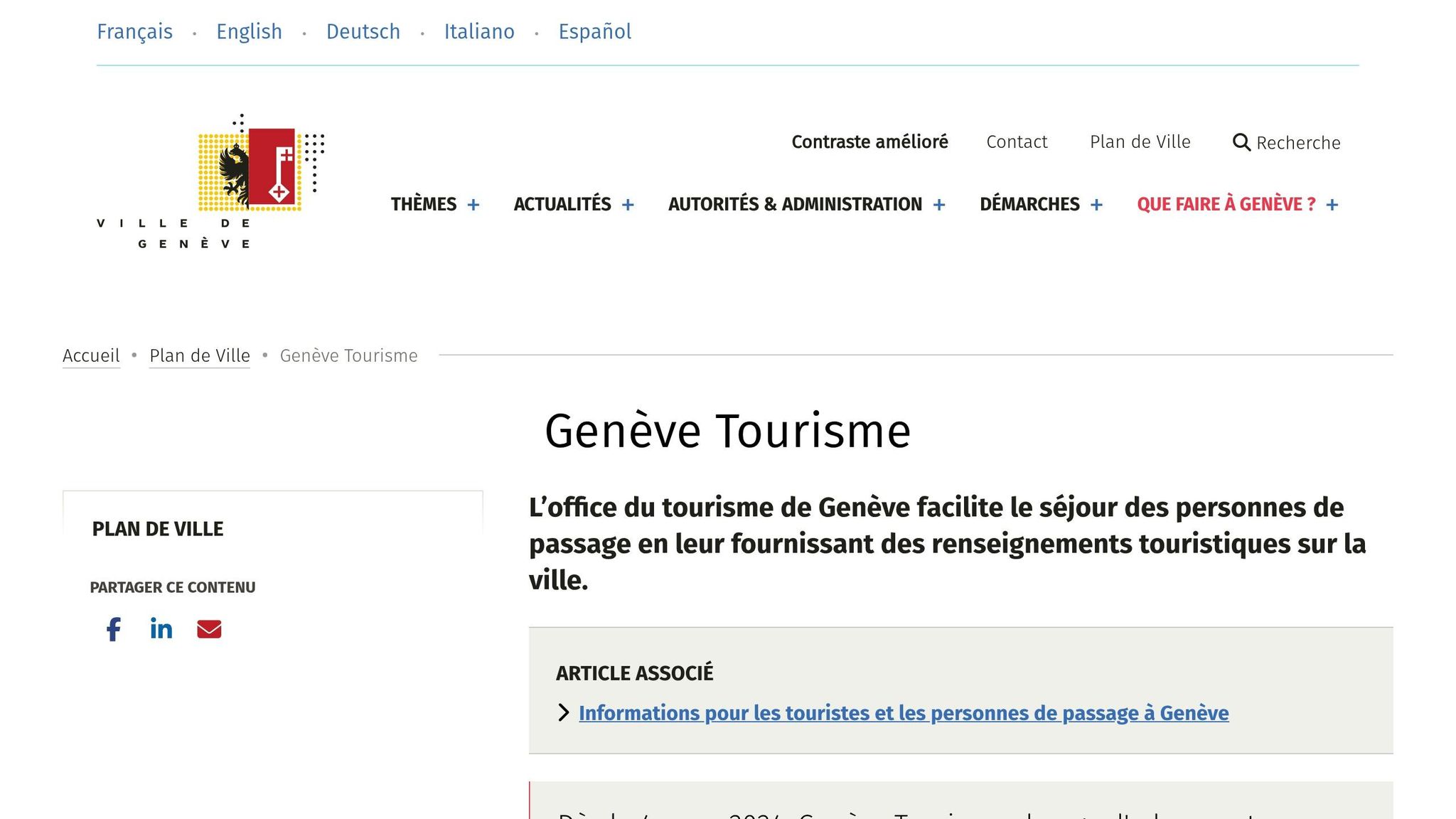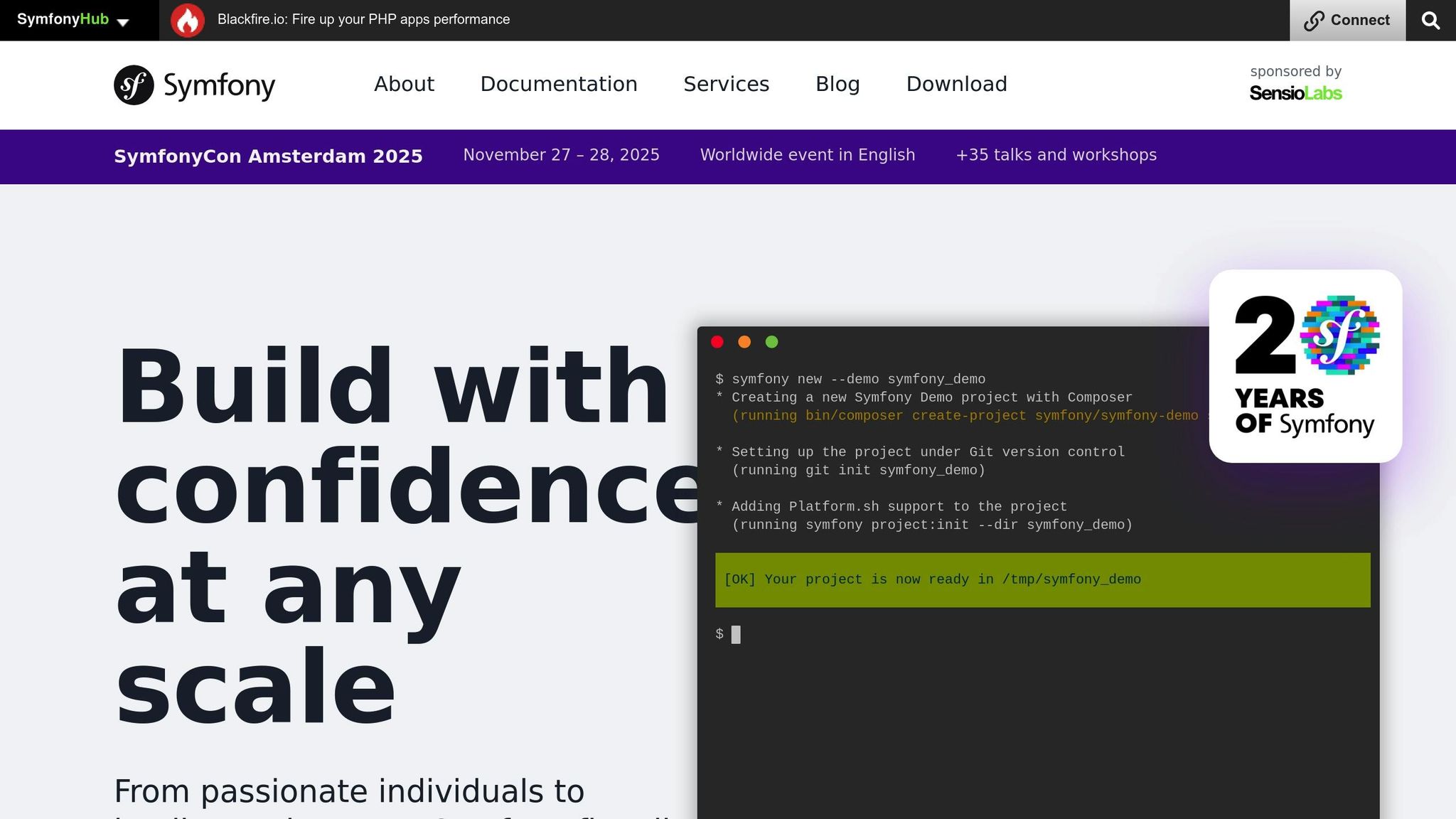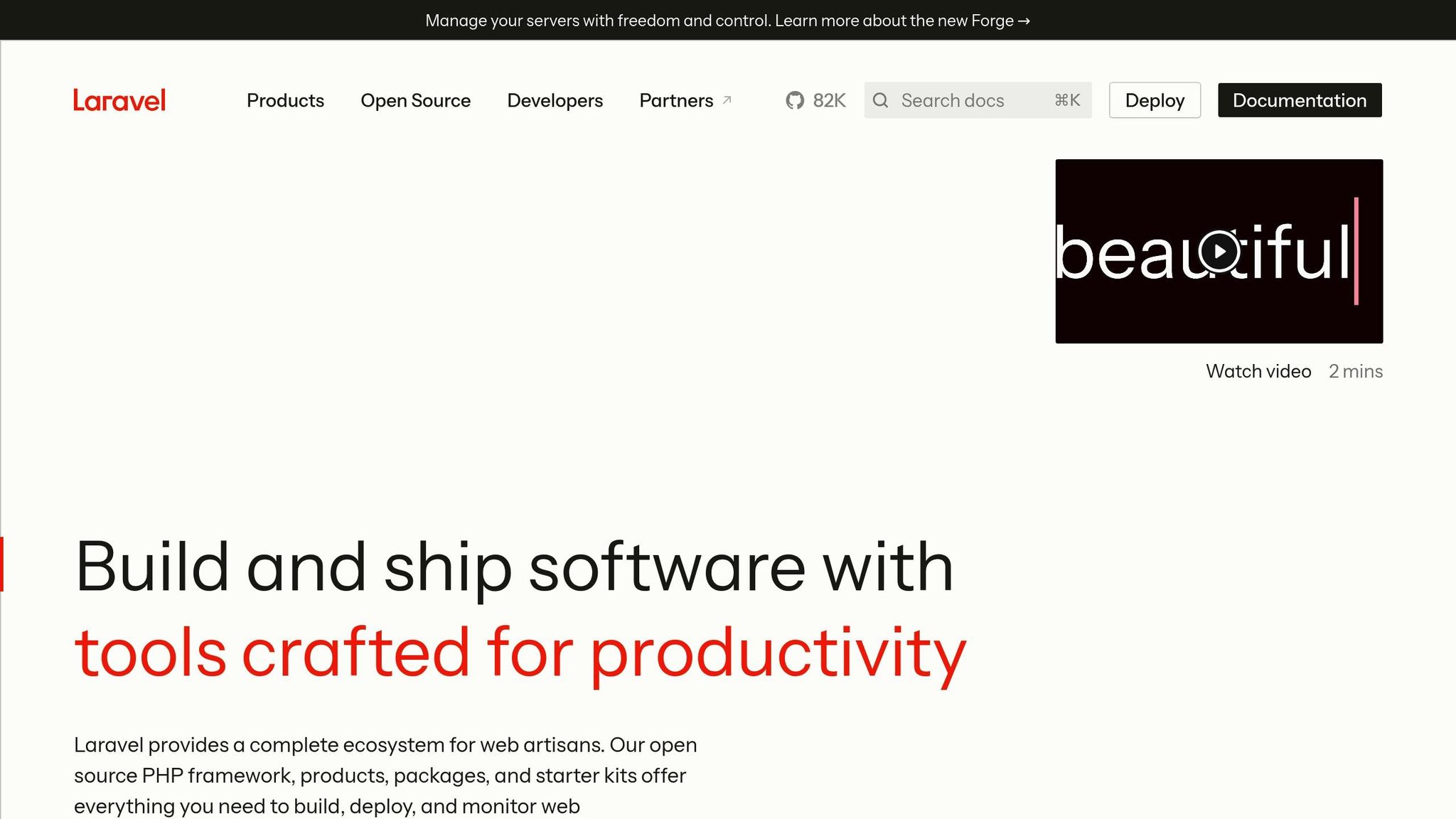CMS custom: when to choose development
Custom CMS: when to choose development
A is a solution designed specifically to meet unique needs that a standard platform cannot cover. In Switzerland, this approach becomes essential in demanding contexts such as multilingual management, integration with local systems (ERP, CRM, payments like Twint), or to ensure compliance with strict regulations regarding security and data protection.
4 situations where a custom CMS is essential:
- : Optimized structuring of content and URLs for the different official Swiss languages.
- : Seamless connection to ERPs (SAP, Microsoft Dynamics) or local solutions like PostFinance.
- : Unique interfaces tailored to the specific needs of each company.
- : Managing high-traffic sites with architectures capable of adapting to growth.
In Switzerland, companies like in Geneva, specialized in Symfony, Laravel, and , offer tailor-made solutions that integrate perfectly with local requirements and support business growth.
Key advantages:
- Total control over features and data.
- Compliance with Swiss standards.
- Long-term cost savings thanks to the absence of recurring licenses.
Ideative - Our project for Geneva Tourism awarded at Best of the Web 2024

When do you need a custom CMS: 4 key situations
A custom CMS becomes essential when your needs exceed the capabilities of standard solutions. Here are four scenarios where this option emerges as a strategic solution. Let's explore these concrete cases in the areas of language management, system integration, design, and performance.
Managing multiple languages
Managing multiple languages, especially in Switzerland with its four official languages, is not just about translating content. Standard solutions often struggle to address the technical challenges of this type of management.
A custom CMS allows for structuring content and URLs in an adapted way, such as: /fr-ch/services/ for French-speaking Switzerland or /de-ch/dienstleistungen/ for German-speaking Switzerland. This level of customization improves both SEO and . Take a text in German: its length may differ from the French version, requiring automatic layout adjustments.
Multilingual metadata adds another layer of complexity. A custom CMS can automatically adjust meta tags, descriptions, and keywords based on language or region, while respecting local sensitivities. This fine-tuned approach demonstrates why a custom solution is sometimes indispensable.
Connection with external systems
When your site needs to interact with your existing tools, integrations become a major concern. This is particularly true for Swiss companies using .
For example, ERPs like SAP or Microsoft Dynamics require real-time connections to synchronize data on products, stocks, or prices. A custom CMS can develop dedicated APIs, ensuring optimal security while ensuring high performance.
Local payment solutions, such as PostFinance or Twint, often have specific technical and regulatory requirements. A custom CMS can integrate these platforms directly and without compromise.
Additionally, CRM tools like Salesforce or HubSpot must be able to automatically collect information from leads generated by the site. A custom CMS can create automated workflows, directly enriching your customer database. These complex integrations fully justify the choice of a custom solution.
Custom design and user experience
For truly unique interfaces, standard themes quickly reach their limits, especially for high-end brands or companies with complex processes.
A common example: an industrial product configurator with multiple steps and specific technical validations. This type of user journey requires custom development.
Custom admin interfaces are also essential for teams with specific needs. A custom CMS can offer tailored dashboards, adapted to each user's roles and integrating shortcuts to key functions.
Advanced accessibility may require extensive customization. If your company must comply with strict standards or meet the needs of specific users, a custom CMS offers total control over every detail of the interface. This level of customization requires a dedicated architecture.
Growth and performance needs
For high-traffic sites or those in full expansion, standard solutions quickly show their limitations. If you anticipate significant growth or already manage a substantial volume, a custom CMS becomes a necessity.
It allows for integrating tools like caching, optimizing databases, and a scalable architecture capable of distributing the load across multiple servers.
With horizontal scalability, your CMS can adapt to traffic spikes by deploying across multiple servers, while managing data replication. This technical flexibility fully justifies the initial investment.
These four situations illustrate that the choice of a custom CMS depends primarily on your specific requirements. The further your needs diverge from standard solutions, the more a personalized approach becomes cost-effective in the long run.
Advantages of a custom CMS for Swiss companies
tailor-made is opting for a strategic solution that brings concrete and lasting benefits. In Switzerland, many companies quickly realize that this personalized approach becomes a real growth driver. Let's see how a custom CMS can positively influence management, security, and profitability.
Absolute control and complete customization
With a custom CMS, you have total control over every aspect of your platform. This flexibility allows you to adapt the system to your specific processes: interface customization to meet your team's needs, , or development of features tailored to your industry.
Your CMS evolves at the same pace as your company. Need a new feature? It can be developed and integrated quickly, offering you valuable responsiveness in a competitive Swiss market.
Moreover, this customization improves technical performance: shorter loading times, optimized cache management, and more efficient queries. The result: a better user experience and enhanced SEO. Finally, this technical mastery facilitates the implementation of security requirements specific to the Swiss context.
Compliance with Swiss standards and increased security
In Switzerland, security and data protection standards are particularly stringent. A custom CMS is designed from the outset to comply with these standards, ensuring strict compliance and optimal protection of sensitive information.
This secure approach goes beyond peace of mind: it can also contribute to for your company.
Long-term cost savings and scalability
Although the initial investment may seem high, the long-term savings are significant. With a custom CMS, you do not have to pay recurring or unexpected license fees, providing better budget transparency.
Your CMS adapts to without requiring a complete overhaul or costly migration. New features can be added gradually, protecting your initial investment.
Furthermore, maintenance is simplified thanks to a team that knows your CMS architecture inside out. Whether it's an in-house team or a partner like , this expertise ensures continuous service and shields you from risks related to changes in strategy by standard solution providers.
sbb-itb-454261f
The best frameworks for custom CMS development
To meet the specific needs of each project, the choice of technical framework is a key step. In Switzerland, where companies' requirements are often high, three frameworks stand out for custom CMS development: Symfony for complex projects, Laravel for rapid implementation, and headless solutions for maximum flexibility.
Symfony for enterprise applications

Symfony is often considered the ideal solution for large-scale projects requiring a robust and scalable architecture. This PHP framework focuses on modularity and maintainability, while ensuring high performance, even with substantial data volumes.
A striking example of its robustness is the use of Symfony by Spotify, which manages millions of users[3]. Symfony also offers advanced features such as support for multiple translation formats (PHP, .po, .mo, XLIFF) and precise security control. These characteristics make it a preferred choice for complex and large-scale projects[1][2].
At EWM SA, we leverage Symfony to design robust solutions tailored to the needs of large enterprises.
Laravel for rapid development

Laravel stands out for its simplicity and efficiency, making it an excellent choice for projects requiring rapid implementation. With clear and intuitive syntax, this PHP framework allows developers to produce efficient solutions in a reduced time frame.
Thanks to its ORM Eloquent, based on the ActiveRecord pattern, Laravel greatly simplifies interactions with databases[1][2]. Additionally, its built-in tools like Forge and Vapor facilitate deployment, reducing production lead times.
At EWM SA, we use Laravel to offer fast and reliable solutions, particularly suited to SMEs and projects with tight deadlines.
Headless CMS for modern solutions
Headless CMS redefines content management by separating the backend from the frontend. Content is distributed via APIs (REST or GraphQL) to various channels, whether websites, mobile applications, or other interfaces. This approach ensures smooth and consistent multi-channel distribution[4].
This solution is ideal for Swiss companies managing multiple platforms from a single system. Content can be created once and published instantly on all channels, ensuring consistent communication. Additionally, development teams and content editors can work independently, improving overall productivity.
Pricing options are flexible, allowing for a solution tailored to different budgets[4].
These frameworks address the specific challenges of the Swiss market, whether in language management, scalability, or performance.
| Framework | Key strengths | Ideal for |
|---|---|---|
| Symfony | Modularity, advanced security, high performance | Large companies with complex needs |
| Laravel | Rapidity, intuitive syntax, simplified deployment | SMEs, quick projects, small teams |
| Headless CMS | Multi-channel flexibility, modern architecture | Distribution on multiple platforms |
At EWM SA, we master these three approaches and support you in choosing the solution that matches your specific goals and constraints.
How EWM SA develops custom CMS solutions
Since 2011, EWM SA relies on a solid methodology to offer tailored CMS solutions, while rigorously respecting local and international standards.
Needs analysis and respect for Swiss specificities
It all starts with a detailed analysis of business needs and technical constraints specific to each client. This process is based on four key steps:
| Step | Objectives |
|---|---|
| Technical audit | Evaluate the existing infrastructure and any limitations |
| Needs analysis | Identify essential processes and expected features |
| Compliance study | Verify alignment with legal standards in Switzerland |
| Project planning | Define a precise schedule and allocate necessary resources |
This in-depth analysis allows for considering local specificities, such as currency management, Swiss price and date formats, as well as multilingualism. It also ensures compliance with current regulations, tailored to the various business sectors of our clients.
These steps are essential for designing truly custom interfaces, perfectly adapted to the identified needs.
Custom user interface design
The design of interfaces is a fundamental pillar of our approach. Our specialized UX/UI teams create user experiences designed to attract and function efficiently, whether for local or international audiences. We ensure the integration of linguistic and cultural specificities specific to each audience.
Each interface aims to maximize the productivity of editorial teams through intuitive dashboards, facilitating multilingual content management. Our designs ensure a smooth and consistent experience, whether on a computer or mobile, while respecting international standards.
Technical development and continuous support
Once the needs are defined and the interface designed, we move on to the
